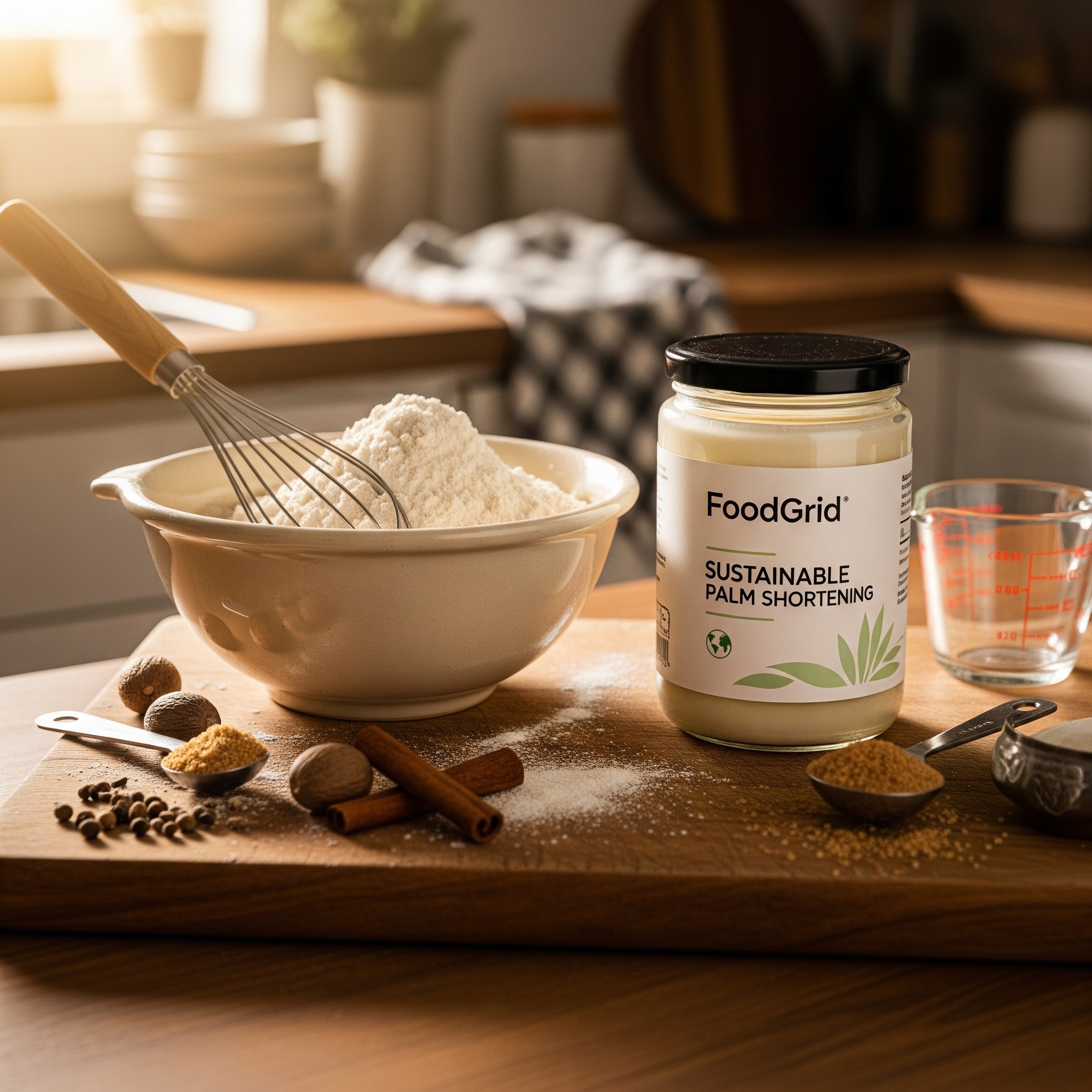In an era demanding both peak performance and uncompromising ethical standards, how can food manufacturers consistently deliver? The answer lies in sustainable palm shortening—a versatile, cost-effective, and environmentally responsible fat that’s redefining product development.
Why Sustainable Palm Shortening is Your Next Key Ingredient
Palm shortening, a semi-solid fat derived from the fruit of the oil palm tree, has rapidly become an indispensable ingredient in modern food manufacturing. Its inherent high stability and remarkable versatility make it a superior choice for a diverse range of applications, from large-scale baking operations to processed food formulations, offering significant advantages over traditional butter, margarine, or other vegetable shortenings.
A Sustainably Produced Fat for Industrial Excellence
The oil palm tree is renowned globally for its unparalleled productivity. Cultivated in tropical regions, it stands out as the most efficient oil-producing crop per hectare, requiring significantly less land, water, and pesticides compared to alternatives such as soybean or canola. This translates directly into a more sustainable raw material footprint, a crucial factor for businesses committed to environmental stewardship.
The oil palm yields two primary types of oil: palm oil and palm kernel oil. Palm oil, the more widely produced, is an incredibly versatile ingredient, used across food, cosmetics, biofuels, and as a primary vegetable fat in industrial cooking and baking.
The production of palm shortening involves refining and processing palm oil to eliminate impurities and excess moisture. This meticulous process yields a semi-solid fat with a neutral flavor profile and a high smoke point, making it ideal for high-temperature cooking, deep-frying, and critical industrial baking processes where stability is paramount.
The Strategic Advantages of Sustainable Palm Shortening for Your Business
- Unrivaled Versatility and Functional Performance: One of the core strengths of palm shortening in a manufacturing setting is its immense versatility. It integrates seamlessly into a vast array of industrial recipes, including:
- Bakery Products: From enhancing the flakiness of pie crusts and consistency of cookies to providing optimal structure in cakes and breads.
- Confectionery: Delivering smooth textures and stable consistencies crucial for frostings, icings, chocolate, and fillings.
- Frying Applications: Its high smoke point and oxidative stability ensure consistent product quality and extended oil life, reducing operational costs.
- Meeting Health Trends with Trans-Fat-Free Formulations: In response to global health concerns and tightening regulations, food manufacturers are actively phasing out partially hydrogenated vegetable oils (PHVOs) due to their trans fat content. Trans fats have been conclusively linked to increased risks of heart disease, leading many countries to impose outright bans or severe restrictions on their use in food production (e.g., the FDA’s ban on PHVOs in the U.S., and similar measures across the EU).
Sustainable palm shortening offers a robust and healthier alternative, being naturally trans-fat-free and significantly lower in saturated fat compared to many traditional solid fats. This enables manufacturers to develop “clean label” products that align with consumer demand for healthier options without compromising on texture, shelf-life, or taste.

- Enhancing Corporate Social Responsibility (CSR) Through Sustainable Sourcing: Beyond its functional benefits, sustainable palm shortening provides substantial advantages from a sustainability perspective, bolstering your company’s CSR profile. The oil palm’s efficiency means less land is required to produce the same quantity of oil compared to other oil crops, directly reducing the environmental footprint of your supply chain. This is a powerful message for environmentally conscious consumers and stakeholders.
Crucially, sustainable palm oil production practices are pivotal in protecting vital natural habitats and wildlife, particularly in biodiversity-rich regions. Leading certification programs, developed by globally recognized organizations, ensure palm oil is produced responsibly and ethically. These programs mandate adherence to stringent environmental and social standards, including:
- Protection of primary forests and high conservation value (HCV) areas.
- Respect for the rights of indigenous communities and local land-users.
- Ensuring fair labor practices and safe working conditions.
By actively sourcing certified sustainable palm shortening, your company directly supports these global efforts, promoting responsible agriculture and mitigating critical risks within your supply chain. When procuring, prioritize products certified by reputable bodies such as the Roundtable on Sustainable Palm Oil (RSPO) or the Palm Oil Innovation Group (POIG). These certifications provide verifiable assurance of responsible production, aiding in compliance and brand reputation management.

- Driving Economic Stability and Supply Chain Resilience: The palm oil industry is a significant source of employment and economic income for millions in tropical regions. By committing to sustainable palm oil production, your procurement decisions contribute to the creation of stable jobs and support local economies, fostering greater resilience within the global supply chain. This strategic approach minimizes future supply disruptions tied to environmental degradation or social conflicts, ensuring a more secure and ethical raw material flow for your business.
Conclusion: A Strategic Choice for Future-Forward Food Production
In summary, sustainable palm shortening stands as a highly versatile, functionally superior, and ethically responsible ingredient for modern food manufacturing. It provides a healthier, trans-fat-free alternative to outdated fats while offering profound environmental and social benefits that resonate with today’s market. For strategic sourcing, always prioritize products certified by recognized sustainable palm oil programs, enabling your business to leverage the numerous culinary, health, and reputational advantages this ingredient offers.
Partner with FoodGrid for Quality & Sustainability
To make the optimal choice for your formulations, consider the affordable, trans-fat-free vegetable shortening produced by FoodGrid. As part of our comprehensive range of quality ingredients, our shortening is crafted with the industrial consumer in mind. It is made from 100% non-GMO palm oil, contains no hydrogenated fats, and is engineered to deliver consistent, excellent results in diverse cooking and baking applications, aligning perfectly with your product development and sustainability goals.
Explore More Insights from FoodGrid for Food Industry Professionals:
- Rethinking Seed Oils: A Closer Look at Fats, Heart Health, and Palm Fruit Oil
- Healthy and natural alternative solutions for the food industry
- Schools are banning artificial colors: Why manufacturers need to switch to natural sprinkles
- California’s ban on Red #3: How FoodGrid’s natural colored sprinkles offer a solution for manufacturers
- What are the healthiest oils to cook with?
- How to become a healthy food ingredients distributor
- Ever considered launching your own food brand? Here’s what you need to know!
